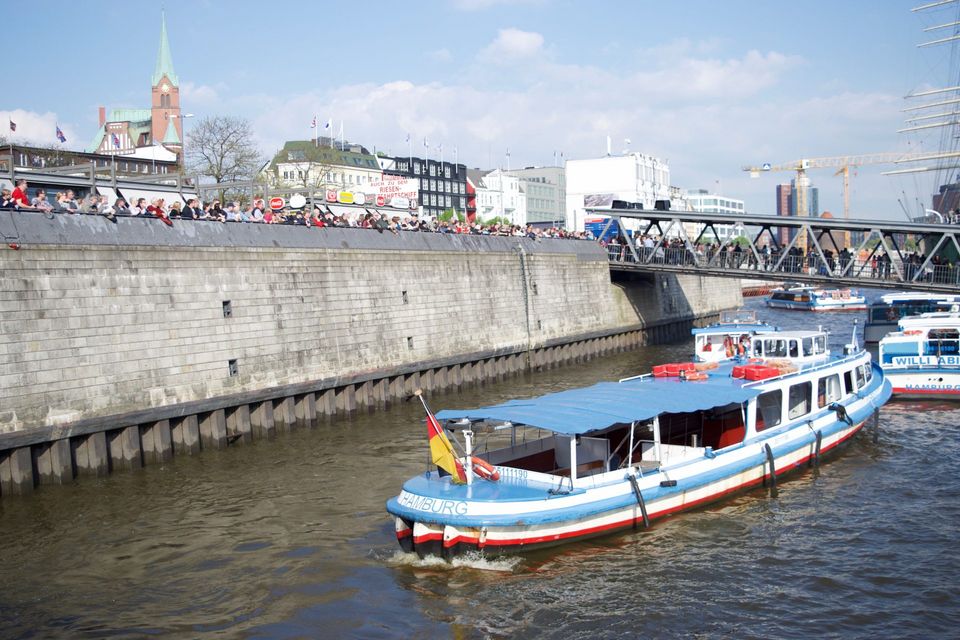Discovering Germany
Hamburg Port Anniversary
What would Hamburg be without its port? Providing a safe haven for ships all over the world, the harbour is a basis of the city’s economy. It’s no wonder, then, that residents throw a big party, the Hamburger Hafengeburtstag, every year to celebrate the port’s anniversary. It attracts crowds of international travellers to the city on the Elbe River.
The Port of Hamburg: „Gateway to the world“
There’s no overlooking the port when you visit Hamburg. Pulling into Hamburg Central Station, you can see the many cranes and containers of the harbour from your train, and the Autobahn 7 also takes you past the port. The dimensions of the harbour can be best appreciated from the Landungsbrücken (landing bridges). In the Willkomm Höft restaurant, incoming ships are greeted with the national anthems of their countries of origin.
Historical background
The harbour and the Hanseatic League
The port and maritime industries have always been important to Hamburg’s economy. There are traces of the city’s past as a trading centre whenever you go. Hamburg started dealing in salt and spices early on, and this trade contributed to the city’s wealth and significance.
Today, Hamburg harbour is one of the largest ports in Europe. Gigantic freighters bring countless containers into the city, and massive cruise ships also regularly stop there. In total, vessels from more than 170 countries sail up the Elbe to dock in Hamburg, giving the city its special international flair and making it a gateway to the world. Any coffee you buy in Germany will have almost certainly travelled through Hamburg!
Risa from Japan reports on her visit
What are the Hafengeburtstag festivities?
The Hafengeburtstag is held in early May, takes place over the weekend and begins on Thursday or Friday with an ‘arrival parade’. A veritable flotilla of ships sail to Hamburg for the festivities, arriving on the first day. They are welcomed by onlookers on the Landungsbrücken, while the national anthems of their countries of origin are played. This maritime parade is broadcast live on television, and you can find lists of the ships taking part on the internet. Some regular ‘guests’ participate year for year, but new ships from all over the world are also invited for every new edition of the festival.
„During the Hafengeburtstag, I realised how many influences from a so many different countries come together here.“
Risa Yoshizumi from Japan
Saturday’s highlight is the ‘tugboat ballet’, featuring the little boats that tow the giant container vessels into the port and see to it that they don’t crash into anything. Tugboats are extremely manoeuvrable and thus ideally suited to ‘ballet dancing’. Sounds crazy, doesn’t it? If you’re standing in front, you may get a little wet. In the evenings, there are usually fireworks.
The festivities conclude with the ‘departure parade’ on Sunday when the city bids farewell to the guest ships.
Conclusion
In line with this topic
Discovering Germany




